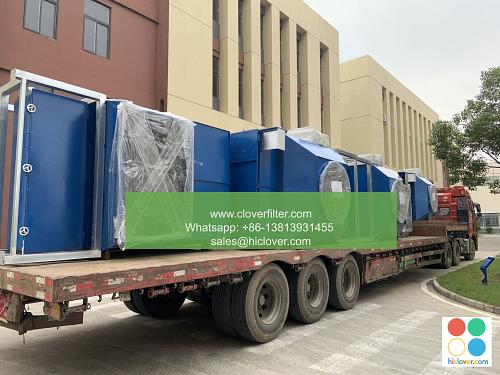The Most Advanced Air Filtration Technologies for Clean Room Environments: Terms Explained

Clean room environments require the most advanced air filtration technologies to maintain the highest level of air purity and minimize contamination. In this article, we will delve into the world of cutting-edge air filtration systems, explaining key terms and highlighting various application areas.
Introduction to Clean Room Air Filtration
Clean rooms are controlled environments that require precise temperature, humidity, and air quality control. The primary goal of clean room air filtration is to remove airborne particles, gases, and microorganisms that can contaminate products, equipment, and processes. Advanced air filtration technologies, such as High-Efficiency Particulate Air (HEPA) and Ultra-Low Penetration Air (ULPA) filters, are essential for achieving the desired level of air cleanliness.
Key Air Filtration Technologies for Clean Rooms
Several advanced air filtration technologies are used in clean room environments, including:
* HEPA (High-Efficiency Particulate Air) filters: Designed to capture 99.97% of particles as small as 0.3 microns, HEPA filters are widely used in clean rooms, hospitals, and laboratories.
* ULPA (Ultra-Low Penetration Air) filters: With an efficiency of 99.999% for particles as small as 0.12 microns, ULPA filters are used in applications where ultra-clean air is required, such as in semiconductor manufacturing and pharmaceutical production.
* Activated Carbon filters: Used to remove gases, vapors, and odors from the air, activated carbon filters are commonly used in clean rooms, laboratories, and industrial facilities.
* Ionization-based air purification systems: These systems use ions to attract and trap airborne particles, reducing the risk of contamination in clean room environments.
Application Areas for Advanced Air Filtration Technologies
Advanced air filtration technologies have a wide range of applications in various industries, including:
* Pharmaceutical and Biotechnology: Clean rooms are crucial in pharmaceutical and biotechnology manufacturing, where air purity is essential for product quality and safety.
* Electronics and Semiconductor Manufacturing: The production of electronic components and semiconductors requires ultra-clean air to prevent contamination and ensure product reliability.
* Medical and Healthcare: Hospitals, laboratories, and medical research facilities rely on advanced air filtration technologies to maintain aseptic environments and prevent the spread of infections.
* Aerospace and Defense: Clean rooms are used in the manufacturing and testing of aircraft, spacecraft, and defense equipment, where air purity is critical for product performance and reliability.
Challenges and Future Directions
While advanced air filtration technologies have revolutionized clean room environments, there are still challenges to be addressed, such as:
* Energy efficiency: The operation of air filtration systems can be energy-intensive, and there is a need for more energy-efficient solutions.
* Filter maintenance and replacement: Regular maintenance and replacement of filters are essential to ensure optimal air filtration performance.
* Emerging contaminants: The increasing use of nanomaterials and other emerging contaminants requires the development of new air filtration technologies that can effectively capture and remove these particles.
In conclusion, the most advanced air filtration technologies are crucial for maintaining clean room environments and minimizing contamination. By understanding the key terms and application areas, industries can select the most suitable air filtration solutions for their specific needs, ensuring the highest level of air purity and product quality. As technology continues to evolve, we can expect to see even more innovative and effective air filtration solutions for clean room environments. Prompt

